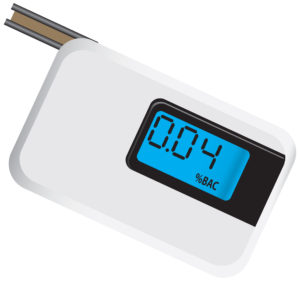
If you are stopped for DUI, you may eventually be asked to submit to a portable breath test (PBT) to determine your blood alcohol concentration (BAC). Whether or not you submit to this testing is up to you, but it’s worth noting that refusal is a crime in and of itself, which will come with its own ramifications. This doesn’t necessarily mean that you should always take the test, rather, it’s wise to consult with an attorney before blowing into the device to get some advice tailored to your specific situation.
If you acquiesce, you will be asked to blow into a PBT machine for a short period of time. If this process doesn’t go smoothly, there’s a possibility that you can be charged with test refusal, even if you attempted to comply with directions. In today’s blog, we explain how you can end up being charged with test refusal even if you tried to blow into the machine, and what your next steps should be.
Charged With Refusal Despite Blowing
A test error typically occurs when the machine does not get enough of a sample to produce a result. Most machines require about 1.5 liters of a breath sample in order to provide an accurate reading, so if you do not blow that much air into the machine, you can get an error. Too many errors, and the officer may simply charge you with test refusal.
Failing to produce enough of a sample typically occurs in one of two ways. The first is an intentional move by the blower in hopes of inducing an error. Many people don’t realize that they can still be charged with test refusal if they have too many failed attempts, so they assume that they are only helping their case by causing an error result. Either they’ll try to cover the collection tube with their tongue as they blow, or they’ll keep their mouth slightly open when they blow so that air escapes and isn’t collected by the tube. Officers can typically spot these moves, and again, since you can still be charged with test refusal, it’s in your best interest to try and submit a legitimate sample if you have decided that you are going to take the test.
The other type of failure stems from an unintentional move. Perhaps you have an underlying health condition or lung issue that prevents you from being able to provide enough of a sample. Or you legitimately gave it your best effort and simply couldn’t get the device to provide a reading. These things can happen, and if it leads to a test refusal charge, you need to take action.
Whichever scenario applies to you, it is in your best interest to connect with an attorney to assist with your test refusal and possible DUI case. A good lawyer can fact check your claims and provide a convincing argument as to why you were unable to provide a legitimate sample. If you were trying to fool the machine, your lawyer can help explain your next best moves for you, your family and your driving abilities. A test refusal will lead to a one-year license suspension, so you need to contest the charges or figure out a plan for moving forward so that you can avoid a worst case scenario.
For more information on test refusal or alcohol-related criminal charges, reach out to Avery and the team at Appelman Law Firm today at (952) 224-2277.





